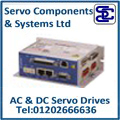
Posted to News on 15th May 2017, 14:23
Altec embraces ultrasonics for plastics joining
Altec Engineering is presented with many challenges from industry sectors including automotive, medical and healthcare. Many of these projects are assembly orientated, often using technical plastics, and increasingly require a clean, consistent and measurable joining process. The compact nature of ultrasonic technology, combined with the flexibility with which these systems can be applied, has led Altec to select ultrasonics as the process of choice for a growing number of plastics joining and assembly applications.
Traditional technologies used for plastic component assembly include hot air / cold staking, vibration welding, hot plate welding, heat sealing, adhesives and riveting. Altec has experience with most of these processes, and applied them successfully in the past; however, the ongoing drive to reduce energy consumption means that processes which require continuous heat are becoming less desirable.
Riveting and fastening processes mean not only additional components but also extra cost, and in today's competitive climate even the smallest additional cost can have a negative impact on profitability. The rigorous health and safety standards that must be maintained when using adhesives and chemicals mean that the use of these products is also being questioned in certain cases.
Ultrasonic technology by comparison offers an energy-efficient alternative to many joining and sealing applications with the added benefits of cleanliness, precise process control and no consumables.
Ultrasonic welding is at the heart of several recent multi-part assembly systems designed and built by Altec Engineering for the manufacture of medical sector and healthcare products.
These systems clearly demonstrate the flexibility that the ultrasonic process gives to machine builders. The technology can easily be integrated within a robot cell, with the robots being used to present components to a series of ultrasonic presses to perform the welding and assembly operations. In a separate system, the ultrasonic welders are used in a more conventional manner, without the use of robots.
A further benefit of the process is the ability to fine-tune the welding parameters power, force and amplitude etc., which ensures consistent performance and quality on each product. Weld parameter data can also be exported and used for evaluation purposes or stored to provide traceability information, a requirement for some medical sector products and other safety-critical components.
The clean characteristics of the process coupled with precision, process control, fast cycle times and measurability make the technology useful for applications requiring fine tolerances and where hermetic sealing may be required as part of the assembly process.
Altec has formed close working relationships with UK suppliers of ultrasonic systems and modules, ensuring that the systems delivered to end customers will have the highest levels of reliability and readily available ongoing support if required. For more information about Altec's plastics joining and assembly capabilities, please visit www.alteceng.co.uk.
Want the latest machine building news straight to your inbox? Become a MachineBuilding member for free today >>


















